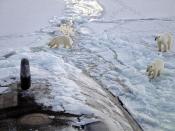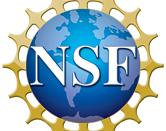The end of World War II brought about a period of great change within the United States. The US economy had taken advantage of the war by rising from the ashes of the Great Depression, but how would the economy respond once the war ended and peace-time resumed? What would happen to the strength of the military and military research? What measures would be made to improve institutions of higher learning, which would be receiving an influx of young men and bright scientists returning from the war? How would the upcoming Cold War with the Soviet Union impact all three of these groups? During these times, business, the military, and academic institutions would be very strongly intertwined. Cold War politics played a large role in the relationship between these three groups. This point can best be explained by the impact of the creation of the National Science Foundation after the war.
During World War II, scientists who could have been teaching students in colleges and universities across the country were instead focusing on war research. In essence, the war had stripped educational institutions of talented faculty members, while the depression and war conditions had stunted university research budgets1. Because of this, in mid-1945, Dr. Vannevar Bush, Director of the Office of Scientific Research and Development (OSRD), decided to push for legislation that would set up an agency designed to create an influx of government funding to universities to stimulate basic research2.
Dr. Bush's 184-page proposal would be to set up what would eventually be known as the National Science Foundation (NSF). This foundation would be created to in order to give new momentum to research. The Foundation would provide funding for basic research to non-profit organizations, such as universities and medical schools. In addition, the Foundation would encourage American...


